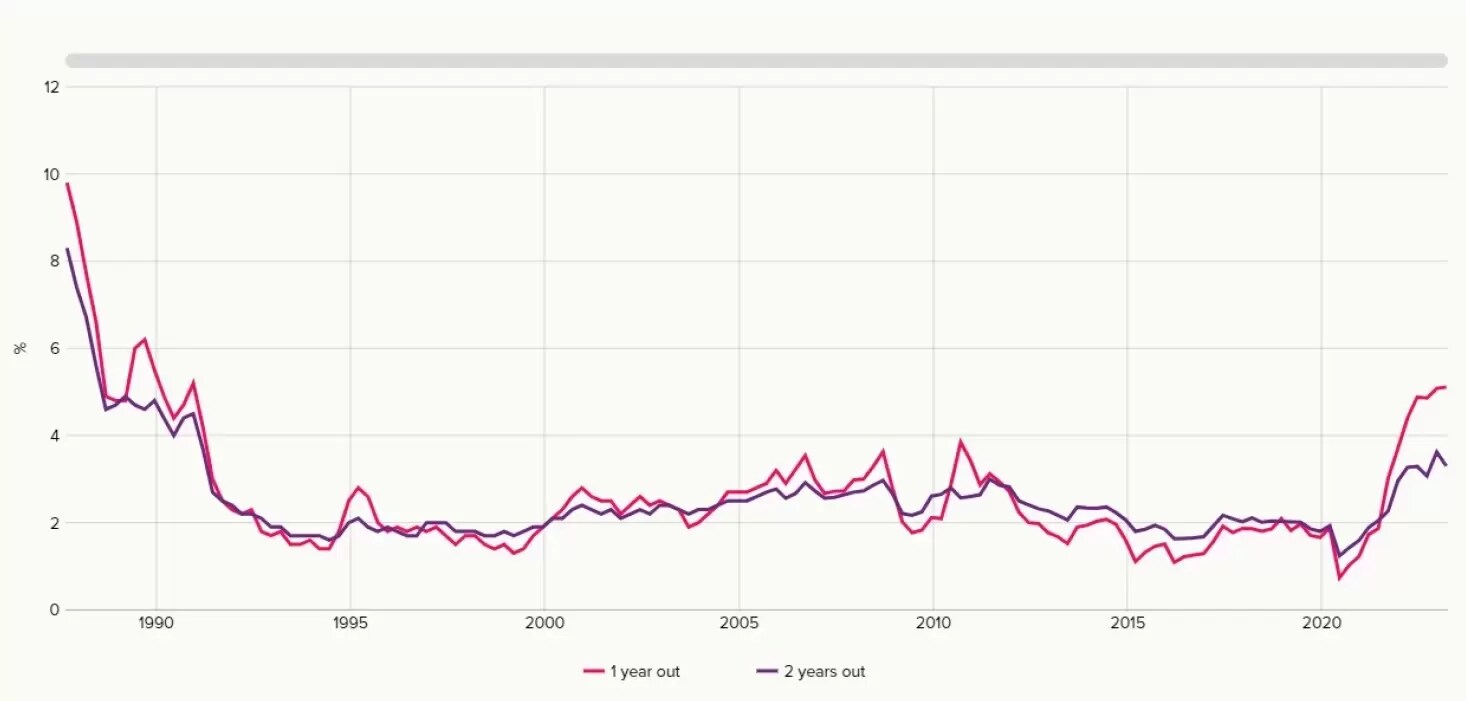
The Reserve Bank of New Zealand (RBNZ) will hold its second policy meeting and decide on the Official Cash Rate (OCR) tomorrow at 2 pm local time. It is widely expected that the RBNZ will raise the cash rate by 25 basis points, bringing the OCR to 5%, then keep the rate on hold. The US Reserve bank scaled back to a 25 basis point rate hike and signaled a pause following the bank turmoil in March. Following the global trend, the bank sees risks to the economy if it insists on the aggressive tightening approach after ten consecutive rate hikes or a total of 450 basis points increase since October 2021.
A historically low business confidence
The newly released by NZIE shows that New Zealand business confidence bounced slightly in the first quarter but stayed near the historically low level of -66. 41% of business owners see sales are the primary concern, surpassing the 29% who think a tight labor market is the main constraint factor. The conclusion suggests that RBNZ’s aggressive rate hikes are taking effect on dampening consumer demands to rein in inflation. Auckland’s flood and Cyclone Gabrielle are expected to further impact the country’s economy after a negative quarterly growth of -0.6% in the fourth quarter2022.
The NZIER Shadow Board members also suggest that the RBNZ needs to pause rate hikes after April amid the country's weakened demands and the recent global banking crisis, which may lead to a likely economic recession.
Inflation may have peaked
New Zealand’s inflation may have peaked at 7.2% annually in the fourth quarter of last year. While the fourth CPI was lower than the RBNZ’s expectation, the two-year inflation expectation fell to 3.30% in the March quarter from 3.62% in the December quarter, and the 1-year expectation rose at a slower pace to 5.11% from 5.08%. The data points to a slower increase in inflation in the first quarter, which will be released on 20 April.
New Zealand Inflation Expectations 1 and 2 years out

However, the labor market stayed tight, with the unemployment rate slightly rising to 3.4% in the final quarter from 3.3% in the third quarter of 2022, the lowest level since 2007. Though the undersupply issues remain in hiring, the country’s border reopening and weakened demand may improve the labor market conditions, encouraging the RBNZ to reconsider its monetary policy path.
How will the market respond to RBNZ’s decision?
Stock markets often take a tailwind of a dovish monetary policy and get hit on a hawkish stance. The NZX 50 may continue its rebounding from October 2022 if the RBNZ softens its tightening measures. The local equity market usually traces the movement on Wall Street. The recent bullish sentiment on the global stock markets is the primary driver of the recent NZX rebound. Hence, the benchmark index may further rise toward its February high of above 12,200. And the New Zealand dollar often reacts rapidly following the RBNZ’s decision. A more dovish-expected tone from the bank may press on the dollar, but a constant hawkish stance will likely push the NZD higher. In a longer time frame, the recent drop in the USD may continue to strengthen commodity prices and commodity currencies, including the Kiwi dollar.
Disclaimer: CMC Markets is an execution-only service provider. The material (whether or not it states any opinions) is for general information purposes only, and does not take into account your personal circumstances or objectives. Nothing in this material is (or should be considered to be) financial, investment or other advice on which reliance should be placed. No opinion given in the material constitutes a recommendation by CMC Markets or the author that any particular investment, security, transaction or investment strategy is suitable for any specific person. The material has not been prepared in accordance with legal requirements designed to promote the independence of investment research. Although we are not specifically prevented from dealing before providing this material, we do not seek to take advantage of the material prior to its dissemination.























